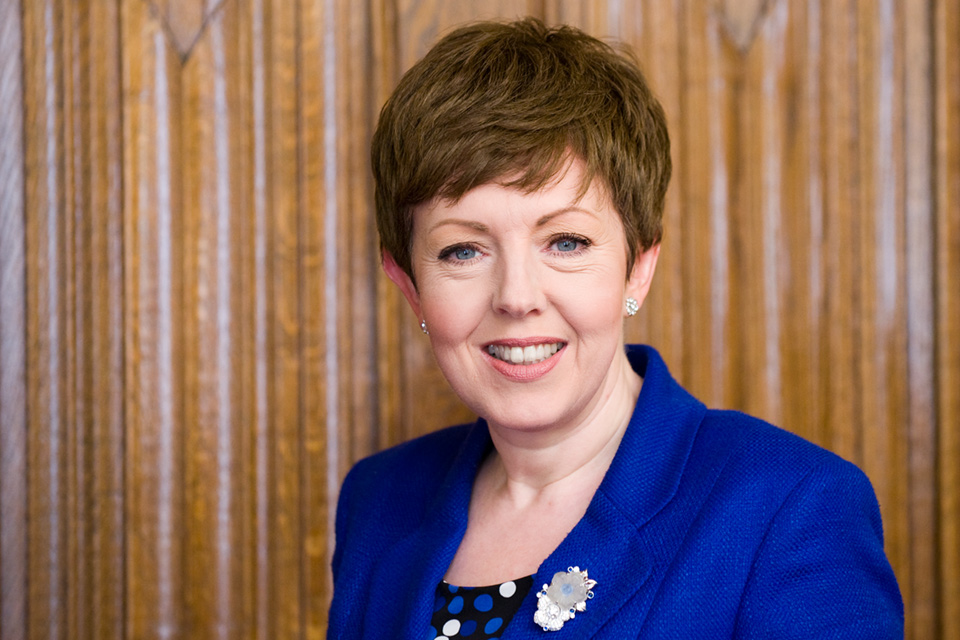Baroness Stowell's speech at Safeguarding Summit
The Chair of the Charity Commission's opening address at a safeguarding summit held to improve standards in charities working in the international development sector

It’s a great pleasure to join Penny Mordaunt in welcoming you to this summit.
I endorse everything she has just said – especially her aims for today and vision for the future.
Before I turn to what action we are taking at the Charity Commission, and what I also think needs to change, I want to say something about language.
As the regulator, it’s important to me that I always speak plainly.
As we now look ahead, it’s vital we don’t allow the shorthand, technocratic word of “safeguarding” to let us forget what the failings are that we are talking about.
And in this context, it is aid workers sexually abusing the most desperate and vulnerable people they were sent to support;
In some cases, your own staff and volunteers taken advantage of by those in positions of trust and power;
And charities abusing their trusted status by failing to put the welfare of the blameless ahead of their corporate reputation.
I also want to make clear that the Charity Commission is committed to working constructively with DFID and all of you to identify practical solutions to stop sexual exploitation and abuse within charities, to drive up safeguarding standards and – crucially – to rebuild public trust.
The Commission has already set up a special taskforce and intensified our efforts to ensure charities report serious safeguarding incidents, including historic incidents they may have failed to report previously.
The rate of reporting in the last couple of weeks has doubled as a result.
Among the reports we’ve received are those from 26 of the charities to which the Secretary of State wrote some weeks ago, requiring categorical confirmation that all incidents had been reported to authorities.
That shows the benefit of our collaboration and combined effort.
Our special taskforce is now examining the reports we’ve received and will ensure that the Commission and the charities involved take the right corrective action.
The Commission has also reflected on the way we communicate with informants who bring serious concerns to us.
Over recent weeks, it’s become clear that those reporting problems are not always made aware of the difference they have made in coming forward.
That can’t be right.
We should be reassuring genuine informants of the impact of their action in coming to us.
And in future we’ll make sure we do.
But if we are to restore public trust, we must understand why people are angry.
And it’s the same thing that has affected the corporate and political worlds too:
Important institutions acting in the interests of those in charge, rather than of the people they exist to serve.
It’s bad enough when bankers disappoint. But when aid workers and charity bosses are self-interested it is incomparably worse.
This is a topic I will return to in more detail in the weeks and months ahead. Because it doesn’t just apply to safeguarding - or just those of you in this room today.
But for now, let me say this.
Quite simply: the public expect charities to be selfless, not self-interested institutions.
They expect charities to have good aims, and to pursue those aims according to common standards of human decency.
It’s vital for all of you as leaders to understand that, however noble your cause, it doesn’t provide immunity from these basic expectations.
No cause, however noble, provides a licence to justify unacceptable means.
It is the combination of why you exist, what you achieve, and how you do it that generates the nation’s pride and people’s support.
This summit will be a failure in my eyes if one of the action-points is “helping the public understand better what it is aid agencies and charities do”.
The public don’t need to understand better.
We need to show we understand what the public expect of us.
Today marks the beginning of getting that right.
What we agree here today will, I hope, have a big impact, reaching far beyond this room.
We know that concerns for people’s safety are not limited to charities working abroad.
Charities working in the UK have their own safeguarding challenges, and must be part of this transformation.
Tomorrow, the Charity Commission is hosting another summit, bringing together charities working in the UK. We will make sure the impact of what is agreed and shared here today feeds into their discussions tomorrow.
And that this week marks the beginning of our joint efforts to rebuild public trust.
Because with their trust and support, you will be able to achieve more.
Thank you.